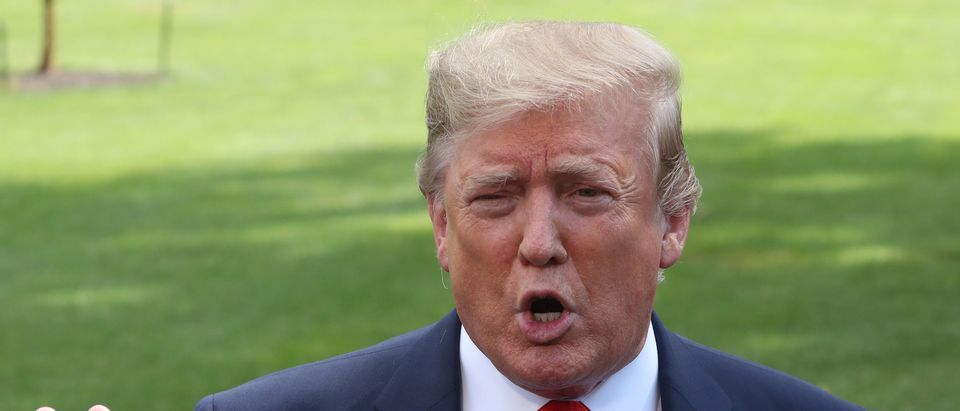President Donald Trump announced Friday that he struck a deal with Guatemala for the Central American country to serve as a safe third country for asylum seekers.
Under a safe third country agreement, Guatemala would be required to accept some asylum seekers within its own borders, helping to stem the overflow of migrants headed toward the southern U.S. border. A migrant from Honduras, for example, would first seek asylum in Guatemala or Mexico before the U.S. (RELATED: DHS Inks Deal With Guatemala To Combat Immigration Crisis)
JUST IN: Trump, in Oval Office, says he’s struck a Safe Third Country asylum agreement with Guatemala.
— Steven Portnoy (@stevenportnoy) July 26, 2019
The announcement comes just days after Trump criticized Guatemala for seemingly backing away from such an agreement, which was first floated during immigration talks with Mexico under looming tariff threats.
“Guatemala, which has been forming Caravans and sending large numbers of people, some with criminal records, to the United States, has decided to break the deal they had with us on signing a necessary Safe Third Agreement,” Trump wrote on Tuesday. “We were ready to go.”
Guatemala, which has been forming Caravans and sending large numbers of people, some with criminal records, to the United States, has decided to break the deal they had with us on signing a necessary Safe Third Agreement. We were ready to go. Now we are looking at the “BAN,”….
— Donald J. Trump (@realDonaldTrump) July 23, 2019
….Tariffs, Remittance Fees, or all of the above. Guatemala has not been good. Big U.S. taxpayer dollars going to them was cut off by me 9 months ago.
— Donald J. Trump (@realDonaldTrump) July 23, 2019
The White House revealed that the deal had been renewed in a tweet, indicating that the president signed the agreement in the Oval Office.
.@realDonaldTrump: The United States and Guatemala have reached an agreement on asylum. The agreement was just signed in the Oval Office.
— The White House (@WhiteHouse) July 26, 2019
Trump said the agreement would put smugglers and coyotes out of business, calling them “bad people,” and added that having asylum seekers make their claims in the first country they enter would limit asylum fraud and abuse. The Department of Homeland Security (DHS) has claimed that while 80% of asylum seekers pass the first-round “credible fear” interview, just 20% are ultimately granted asylum.
The safe third country deal comes on the heels of the Department of Justice (DOJ) and DHS issuing new rules on asylum seekers rendering them ineligible for protection if they fail to first apply in another country they traverse through on their way to the U.S. The rule, which would effectively neuter most of the asylum claims from Central Americans at the U.S. border, was later blocked by a federal judge.


